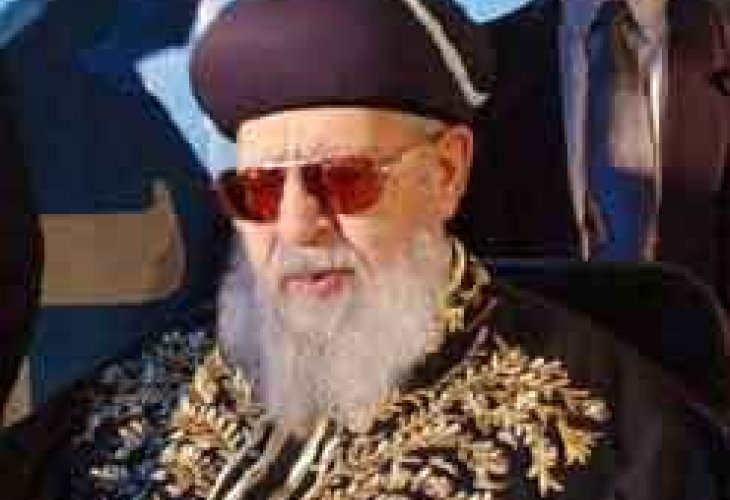Speaking Between Torah Reading and Blessing
Should one say 'Our holy Torah is true' between reading and blessing?

Answer: It is absolutely forbidden to interrupt with speech between a blessing and the fulfillment of a commandment, or between a blessing and tasting food. For example, if someone recites the blessing "Who brings forth bread from the earth," and before putting food in their mouth speaks about matters unrelated to the meal, their blessing is considered in vain, and they must recite it again if they wish to eat. The same applies to blessings over commandments, such as if someone blessed "on taking the lulav," then spoke about other matters, and afterward took the Four Species in hand - they have not fulfilled their obligation of the blessing, and their blessing was in vain.
Now we must consider the Torah blessing recited at the conclusion of the Torah reading, which is a blessing over a commandment, as the person who is called up blesses what they read from the Torah. Is it permissible to say something that is not part of the Torah reading before blessing "Who gave us," or is it forbidden to make any interruption between the reading and the blessing?Indeed, our teacher, the Gaon Rabbi Chaim Palagi, in his books Zochreinu L'Chaim and Chaim, wrote that one should not say "Our holy Torah is true" at the conclusion of the reading, because this constitutes an interruption between the blessing and the reading.
However, there is room for leniency in this matter, because here the speech is not between the first blessing and the Torah reading, but between the Torah reading and the concluding blessing, where there may be grounds to say that it is not forbidden to interrupt, especially when interrupting with matters related to the Torah reading by saying "Our holy Torah is true." There are several other reasons for leniency in this matter. Our teacher Rabbi Ovadia Yosef, may he live long, elaborated on this issue in a responsum (Responsa Yabia Omer part 1), and concluded that although it is more proper not to say "Our holy Torah is true," nevertheless, one who wishes to say it has authorities upon whom to rely.
In summary: It is proper for one called to the Torah not to say "Our holy Torah is true" at the conclusion of the Torah reading before the blessing, as there is concern about interruption. Nevertheless, one who is lenient and says it has authorities upon whom to rely.
Rulings of Rabbi Ovadia Yosef courtesy of "Daily Halacha" website
To subscribe to the Daily Halacha email: www.halachayomit.co.il

